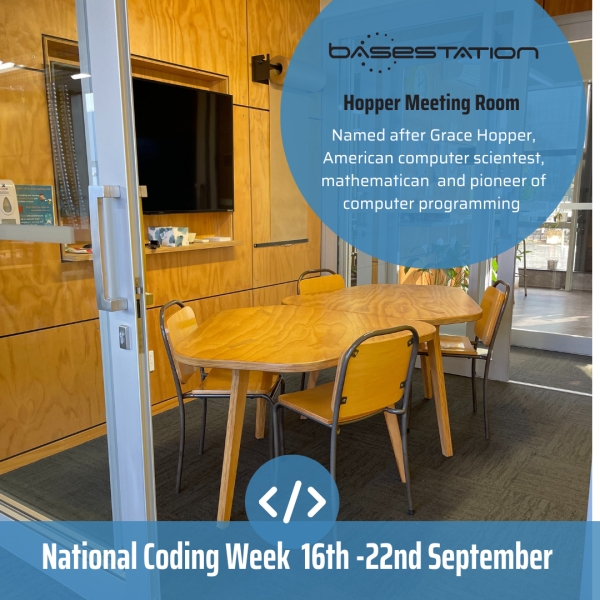But we are jumping the gun a little here, let's start at the beginning!
Born Grace Brewster Murray in 1906, she was the eldest of three children, her parents were of Scottish and Dutch descent, and they resided in New York City.
Grace was a naturally curious child, at the age of seven she took apart a number of alarm clocks in the Murray household as she wanted to understand how they worked.
After highschool, Grace went on to Vassar College, she was initially rejected from early admission as her test scores in Latin were deemed too long, Thankfully the following year, at the age of 17, Grace was admitted to study a bachelors degree in mathematics and physics. After graduating she went on to study for Masters at Yale.
In 1930 Grace married New York University professor Vincent Foster Hopper. The marriage lasted 15 years and ended in divorce, Grace never married again.
In 1931 Grace started teaching mathematics at Vassar while also working on a Ph.D in mathematics. By 1934 she completed her doctorate and seven years later she was promoted to associate professor at Vassar.
The following decade, due to the outbreak of the second world war, Grace applied to join the US Navy. Initially rejected because she was deemed underweight - the Navy required conscripts of her height to be 120 pounds (54kg) minimum - Grace was 105 pounds (47.2kg)!
She was eventually able to join the United States Navy Reserves and served in the WAVES (Women Accepted for Volunteer Emergency Services). By 1944 she had been assigned to the Bureau of Ships Computation Project at Harvard University. She worked on the Mark 1 computer - one of the earliest general-purpose electromechanical computers used in the war effort.
At the end of the war Grace requested to transfer to the regular Navy, but was declined due to her advanced age (she was 38!) She continued to serve in the Navy Reserve. She did however remain working at Harvard Computation Lab until 1949, when she went to work for Eckert-Mauchly Computer Corporation. It was here she started work on the UNIVAC - the first general-purpose electronic digital computer designed for business application in the US.
It was during her time working on UNIVAC that she recommended the development of a new programming language that would use entirely English words, she "was told very quickly that [she] couldn't do this because computers didn't understand English." Still, she persisted. "It's much easier for most people to write an English statement than it is to use symbols", she explained. "So I decided data processors ought to be able to write their programs in English, and the computers would translate them into machine code."
Her idea was not accepted for another three years.
In the Spring of 1959, computer experts from across the country were brought together to attend a two day conference known as the Conference on Data Systems Languages. Grace served as the technical consultant to the committee that defined the new computer programming language COBOL. The language was close to English and went on to be the most widespread coding language used at the time.
It’s thanks to her, and her team's efforts, in making computer programming accessible to all, and the majority of programming languages today use English and not mathematical formulae and machine symbols that only academics can understand.
During her lifetime Grace went on to achieve and help make a number of advances in computer science and mathematics - in short, she’s a big deal in STEM!
In 2016 she was posthumously awarded the Presidential Medal of Freedom by then president Barack Obama.To date the world's largest technology conference for women and nonbinary people is named after her - Grace Hopper Celebration.
As mentioned at the beginning of the blog, when we were looking to name our meeting rooms after technology pioneers, Grace Hopper was at the top of our list. The Hopper meeting room is located on the ground floor at Basestation and can comfortably accommodate 4 people - it’s also one of our most popular meeting rooms. For more information about all our meeting rooms including rates and how to book, click here. You can also book a free tour by clicking here.

